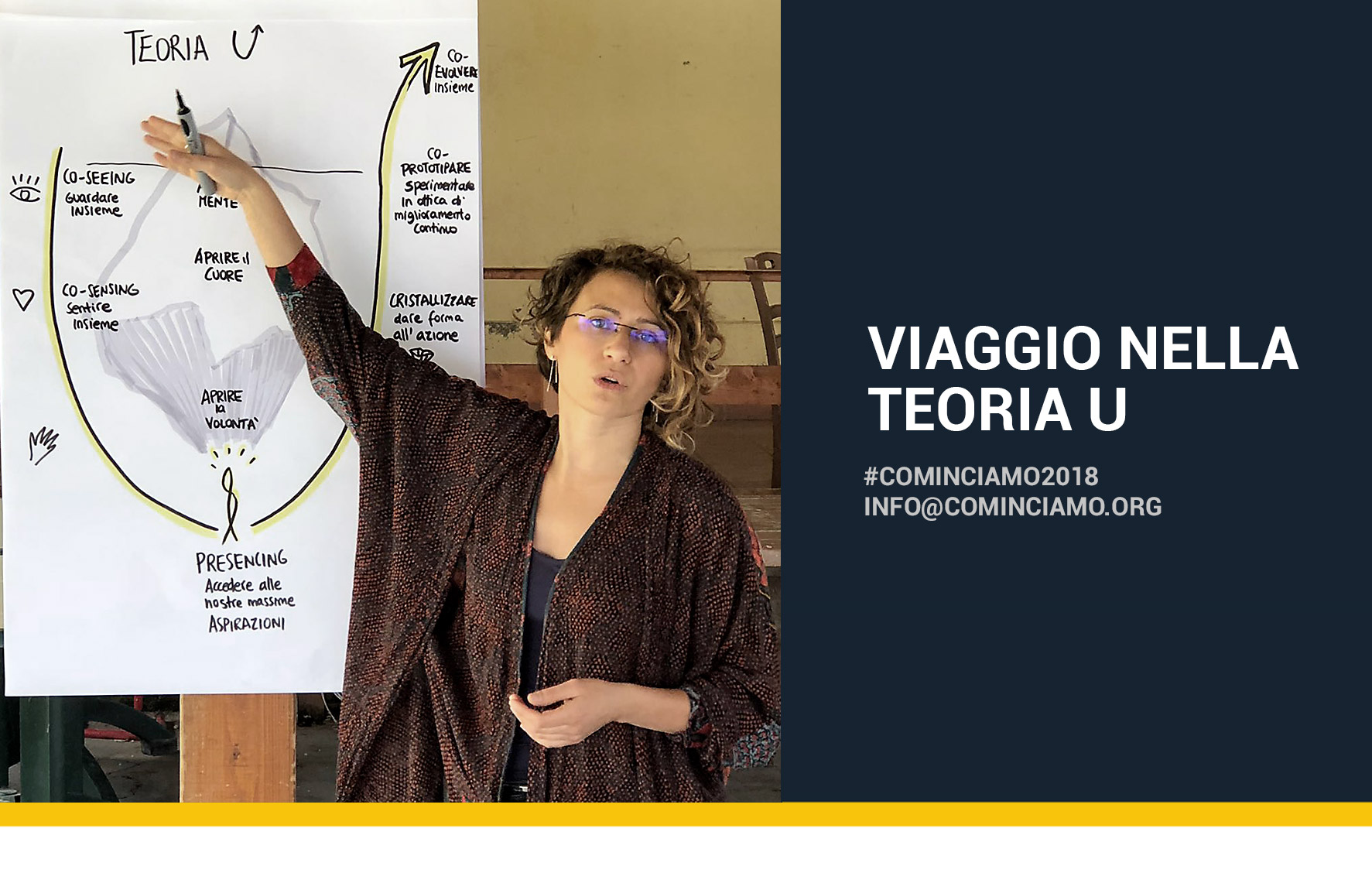It’s called Theory U because it identifies that path of change that, instead of going through an iceberg in the visible part, dives into the water, slowly submerges, to get to the bottom of what’s in the deep, downstream of the U shape, and then rises like a rocket to the right and brings something radically different to the surface. The process, from start to finish, is meant to make a transformation happen in people so that they connect with the highest possibility of themselves. It is based on scientific research that has identified and ascertained what methods and approaches humans take when they succeed in changing themselves and the context in which they live.

“Theory U is a systematization of intuitions – explains Valentina Catena – that many people experience, without being aware of it, when they face a process of transformation. It is an abstraction that starts from the observation of reality. In fact, it derives from research conducted by Otto Scharmer, professor at MIT in Boston and founder of the Presencing Institute, a center for international studies on social change and leadership, based on more than 100 interviews with leaders, including CEOs, politicians, artists, athletes, musicians and representatives of non-governmental organizations, who, through their actions, have changed the context around them for the better and are continuing to do so”.
Theory U in essence can be traced to any situation in which a transformation takes place for the benefit of something greater, during which people are able to connect to a vision that they feel is deeply rooted with who they are and what life and context has called them to become.
“The journey that Peoplerise carries out in companies – Valentina emphasizes – follows a succession of stages well identified by Theory U. First, we start by identifying the challenge that the people participating in the process want to overcome. Thereafter, instead of looking for the solution right away, as would be the case in a traditional approach, there are several stages that allow for in-depth exploration. In fact, the journey allows us to look at issues in a new way, connecting authentically with the motivation that drives each of us”.
The transformation process is individual but always occurs in a participatory and shared way within the group.
“What we do first of all – Valentina points out – is to create a safe space in which people can get in touch with each other, train empathy, look at each other not only as colleagues but also as human beings and share in an authentic manner. We do this by facilitating dialogues, asking questions that allow people and the group to observe in different ways and through a series of exercises that aim to inspire, let intuition run free and develop a dynamic of openness and courage”.
The ultimate goal is to move from an egocentric vision, focused on the interests of one’s own small part, to an ecosystemic vision, which makes one look up from the own little garden and allows one to see the whole, the city in which the garden is located and beyond.
“Traveling through Theory U – Valentina resumes – we face a reflection on the current situation, on the unique qualities and motivations of each participant, until we get to bring out the contribution that everyone wants to give as a human being, a professional and a member of a group. As we move down the U, people begin to feel what it truly means to be part of something bigger. Finally, toward the completion of the journey, a prototype is developed. We say that this is the stage where we move from the heart to the hand, to the action stage. It is the time when the answers to the initial questions take shape”.
The process of transformation is, however, like any journey, not without difficulties, and in this case these are the resistances we all encounter when we try to open our hearts. Theory U in particular identifies three different possible obstacles: the voice of judgment, the voice of cynicism and the one of the fear to act in a radically new way.
“It’s a legitimate shield that we all adopt – Valentina explains – because we are no longer used to experiencing work contexts as places to grow as human beings. In fact, most of the time a division occurs: the side of “us as people inside work” and “us as people outside work”. This is why Theory U is so important, because it allows a deep connection with ourselves, the rediscovery of forgotten inner qualities and our potential for growth. It allows a stronger adherence to what we do, the acquisition of meaning and the rediscovery of us as human beings and not as machines inside a gear”.
Transformation once it happens acts at the individual, team and organizational level but the perspective can be even broader.
“This process – Valentina concludes – can allow the business world to look at its role from a systemic point of view, and thus adopt a different perspective, one of alliance among human beings and other institutions and social bodies for the solution of problems such as poverty, the sustainability of development, and the inclusion of those who live on the margins”.
